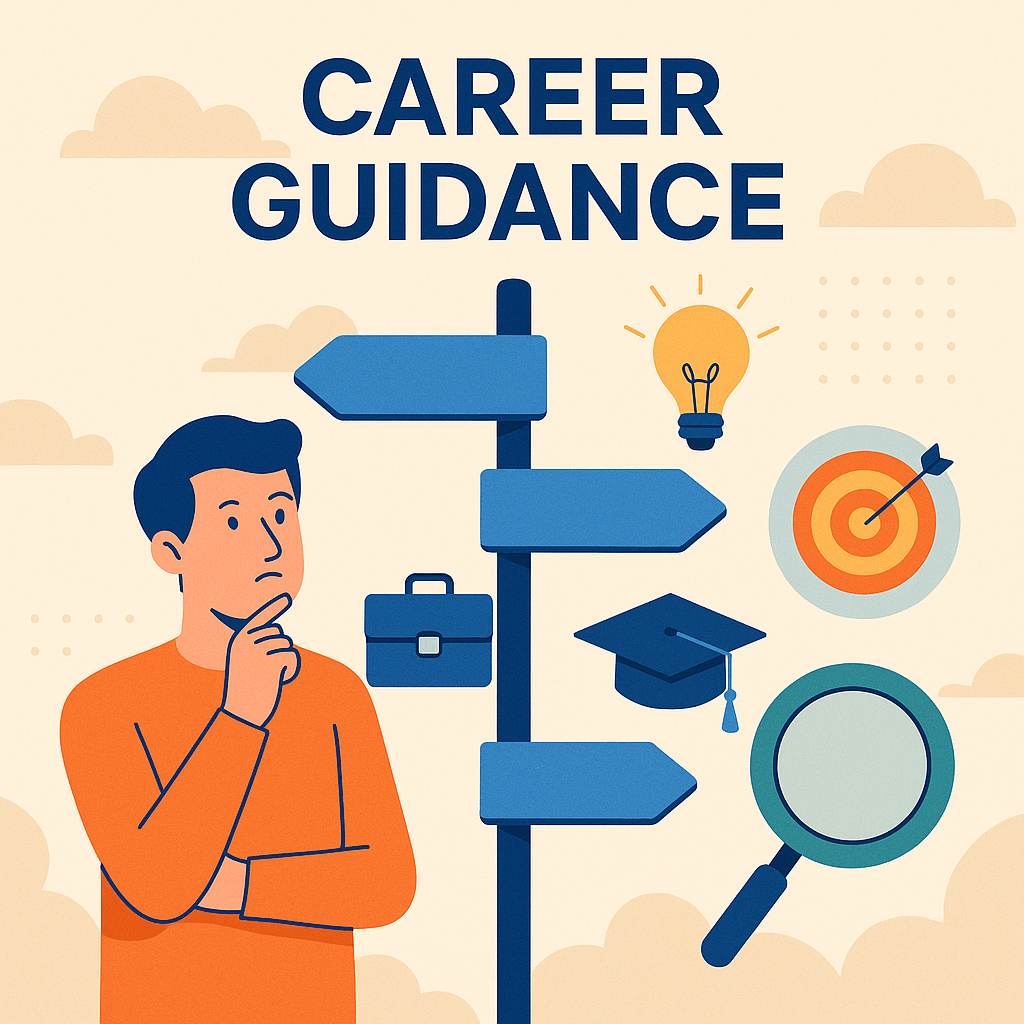Choosing a career is one of the most important decisions an individual makes in life. It’s not just about selecting a job or a means to earn money; it’s about finding a direction that aligns with your strengths, values, and long-term aspirations. Career guidance plays a crucial role in helping individuals identify suitable opportunities and navigate the dynamic world of work with confidence and clarity.
Understanding Career Guidance
Career guidance is the process of helping individuals make informed choices about their professional journeys. It involves assessing personal interests, skills, and goals, then matching them with potential educational paths and occupations. While students often associate career guidance with school counselling, it serves people of all ages, whether they’re choosing a first job, switching careers, or returning to the workforce after a break.
In today’s fast-paced world, traditional roles are shifting, new fields are emerging, and skills are constantly evolving. In such a scenario, professional advice and structured planning become even more relevant.
Why Career Guidance Matters
Making career decisions without proper direction can lead to dissatisfaction, low motivation, or even financial instability. On the other hand, people who receive appropriate career support tend to perform better academically or professionally and show greater satisfaction in their roles.
Career guidance offers:
-
Clarity about the wide range of available options
-
Self-awareness regarding one’s strengths and limitations
-
Realistic goals based on current skills and the job market
-
Support through transitions and decision-making stages
By having a clear sense of direction, individuals can focus their energy and time on building relevant skills, gaining the right experience, and pursuing roles that suit them.
Read:- animation courses and fees
Common Missteps in Career Planning
Many people rely on assumptions or social expectations when selecting a career. Common mistakes include:
-
Following peer pressure or trends
-
Ignoring personal interests and aptitudes
-
Misjudging job prospects or earning potential
-
Choosing fields based solely on family opinion
-
Failing to adapt to changing industry demands
Such decisions can result in frequent job changes or burnout. That’s why it’s important to plan your career intentionally rather than reactively.
Key Elements of Effective Career Guidance
1. Self-Assessment
The first step in career planning is understanding yourself. This includes your:
-
Interests and passions
-
Strengths and weaknesses
-
Learning style
-
Preferred working environment
-
Values (such as job security, creativity, social impact, etc.)
Psychometric tests, skill assessments, and reflective exercises can help individuals identify where their potential lies.
2. Exploring Career Options
Once you have clarity about your profile, the next step is to research career fields that align with it. This involves:
-
Reading about different job roles and responsibilities
-
Understanding required qualifications
-
Learning about industry trends and growth projections
-
Speaking to professionals in those roles (informational interviews)
Platforms such as career portals, job boards, and LinkedIn can provide insight into what certain roles demand.
3. Matching Aspirations with Opportunities
Not all careers suit every person, and not all ambitions align with the current job market. This is where guidance from counsellors or mentors becomes vital. They can help you:
-
Prioritise your goals
-
Match your abilities with viable options
-
Develop a roadmap (short-term and long-term)
-
Choose appropriate academic or training programs
Read more:- CUET Result 2025
4. Building Employability Skills
Academic scores alone don’t guarantee success. Employers value skills such as communication, problem-solving, collaboration, adaptability, and time management. Depending on your career path, you may also need domain-specific expertise such as programming, content writing, design, or data analytics.
Career guidance can also help you identify skill gaps and suggest relevant internships, workshops, or certifications.
5. Decision-Making Support
Choosing between two good options can be confusing. Career advisors provide perspective and help you weigh pros and cons based on facts and personal priorities. With a structured decision-making process, you reduce the chances of regret and increase the likelihood of satisfaction.
Role of Technology in Career Guidance
Digital platforms have made it easier to access personalised career guidance. There are now AI-powered tools that suggest career paths based on psychometric data, online portals that connect students to mentors, and apps that track goals and skill development.
While these tools can be very helpful, they work best when combined with human insights. A conversation with a knowledgeable counsellor or industry mentor can provide context that algorithms often miss.
Read:- how to become an air hostess
When to Seek Career Guidance
It’s never too early or too late to seek career advice. Here are some common scenarios where career guidance can make a difference:
-
High school students choosing subject streams or entrance exams
-
College graduates unsure about job opportunities or further studies
-
Working professionals looking to shift industries or roles
-
Entrepreneurs deciding between ideas or business paths
-
Women returning to work after a career break
-
Anyone feeling stuck or dissatisfied in their current job
Even mid-career professionals can benefit from career mapping sessions to re-evaluate goals and stay aligned with long-term ambitions.
Practical Tips for Students and Professionals
-
Start early: Career planning should begin during school or college. The sooner you understand your direction, the better you can prepare for it.
-
Be open-minded: Careers are evolving rapidly. Be flexible in considering new fields such as digital marketing, ethical hacking, or AI development.
-
Upskill regularly: Lifelong learning is no longer optional. Commit to continuous development through online courses, certifications, or workshops.
-
Stay updated: Keep an eye on trends and changing skill demands in your industry.
-
Build your network: Attend events, webinars, and conferences. Connections often lead to unexpected opportunities.
Conclusion
Career guidance is not a one-time activity; it’s a continuous process. As your skills, interests, and life circumstances change, so should your career goals. Whether you’re a student or a professional, the right advice at the right time can help you move forward with confidence.
A thoughtful career plan reduces uncertainty, saves time, and increases the chances of long-term success. By investing in the process of guidance, you invest in your own potential.






